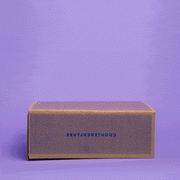By Katie Carguilo, Coffee Manager and Board Member of World Coffee Research
A Hopeful Future for Coffee
In early April, I (Katie Carguilo) traveled to El Salvador with fellow World Coffee Research (WCR) members at a critical moment in coffee. Supply shortages have pushed green coffee prices to record highs, leaving roasters, cafes, and consumers paying more than ever. While farmers should be benefiting, many are facing low yields, unable to take advantage of the market, and unsure how to meet future demand. The industry is short on both solutions and resources. Yet, the trip left me feeling more hopeful than ever about coffee’s future.
Counter Culture and World Coffee Research
Counter Culture has been involved with WCR since its founding in 2012, supporting the organization financially and serving on its board. WCR’s work is rooted in science—developing better coffee varieties and advancing breeding techniques. The organization’s mission is clear: improve quality, yield, and climate resilience, all while preserving the diversity that makes coffee so special.

Cupping new varieties of coffees during the visit.
WCR’s journey began with global field trials, observing how existing coffee varieties perform in different environments. That work laid the foundation for an ambitious leap: negotiating access to genetics in 2020 and launching global breeding programs in 2022. Today, nine countries (Innovea partners) are working with 300 unique accessions, each genetically distinct coffee plants. When a promising variety emerges, WCR’s data team will help identify it and support its path to commercial production. We tasted a few of these varieties on-site and their quality was extremely promising.

Flor Amarilla: A Glimpse Into the Future
Flor Amarilla in El Salvador is a living laboratory, and walking through its rows of experimental trees felt like stepping into the future. A speed breeding system is already in place, accelerating the development of new varieties—but even at twice the speed, coffee breeding still takes years. Add in the regulations and field trials needed before a variety can be approved for release in producing countries, and it’s clear why patience is a virtue in plant breeding.
WCR could take shortcuts by focusing on just one or two origins to ease supply shortages, but that would offer only temporary fixes for a few. Long-term resilience requires more.
Great plant breeding programs depend on three things: genetics, data, and resources. WCR, with limited funding and a scrappy team, is achieving what’s never been done (legally): moving genetics across borders, empowering local breeders, and taking steps to improve coffee in some of its smallest origins. Seeing their work up close got me excited to imagine a future where the entire coffee industry works with nature instead of against it.
 Speed Breeding site at Flor Amarilla.
Speed Breeding site at Flor Amarilla.
Coffee can be a climate hero: it is perennially grown and naturally at home in agroforestry systems. But as climate challenges intensify, farmers and ecosystems are struggling without the tools to adapt. They need climate-smart solutions that improve resilience and make coffee farming more profitable. With better plants, the path to sustainability becomes much more attainable. It’s a future worth investing in today.





